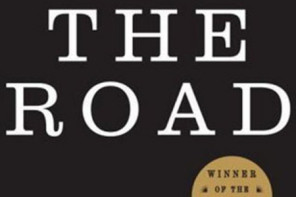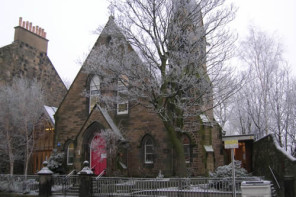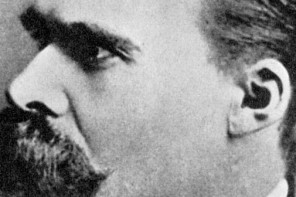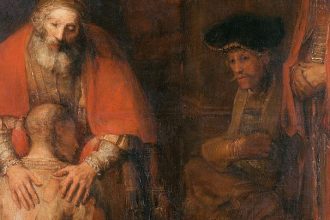Karl Barth’s position, articulated in the first volume of the Church Dogmatics, that the doctrine of analogy (analogia entis) is the invention of the Antichrist served a definite purpose. Though the immediate target was the natural theology of Catholic thought, the attack served also to undermine the facile assumption of Liberal theology that natural revelation gives access to a shared, neutral domain, where Christian presuppositions can (and, in fact, must) be checked at the door. Barth’s rejection of the analogia entis is entirely understandable in the light of Liberal theologians’ endorsement of the political machinations that led to the First World War. These theologians’ Christian convictions appeared to have little or no impact on day-to-day political decisions.
It is hardly coincidental that when mid-century proponents of nouvelle théologie tried to counter the increasing secularization of French society they found a ready ally in Barth’s Christocentric opposition to a purely natural realm as the common ground that supposedly held together the fabric of modern society. We cannot afford to forget the beneficial impact of Barth’s approach in the face of the theological and cultural challenges of the early twentieth century. History, after all, has a way of repeating itself.
Still, when Hans Urs von Balthasar wrote his 1951 book, Karl Barth: Darstellung und Deutung seiner Theologie, he put his finger on the central weakness of the early Barth’s rejection of natural revelation. Balthasar insisted that when God reveals himself to us in Christ, he uses language we all share in common; God’s entry into our world presupposes the stability of the created order. I think Balthasar was right. What is more, the distinctive characteristics of Barth’s Christology as he developed it—especially his insistence that the characteristics of Christ’s human nature may legitimately be attributed to his divinity, so that it is the human Jesus who reveals to us what it means for God to be God—made it difficult even for the later Barth fully to accept the traditional doctrine of analogia entis. Barth always remained suspicious of attempts to make truth claims about God that are not grounded in the human being of Jesus of Nazareth. He always maintained that natural revelation makes sense only on the basis of God’s prior self-revelation in Christ so that—and this is the crucial point—natural revelation is no different in content from God’s revelation in Christ. There would seem to be little space left for natural theology when we understand natural revelation in the way that Barth does.
It seems to me Barth’s opposition to analogia entis does not stand up to scrutiny. But this has to do more with Barth’s distinctive approach to Christology than it does with his focus on Christology per se. Christology as such doesn’t stand in the way of analogia entis: God is able to reveal himself to us in Christ precisely because it is in and through Christ (as the eternal Word of God) that God as made the world. And from the outset the latter (creation in and through the Word) has the former (redemption in Christ) as its goal. The church fathers, from Justin and Irenaeus onward, took their cue from this Christology when they made the daring claim that redemption allows us see creation in a new way: the very shape of the world—determined by the earth’s cross-shaped vertical (north-south) and horizontal (east-west) beams—is based on the redemptive pattern that God has revealed for us in Christ.
In my book, Heavenly Participation (Eerdmans, 2011), I argue for a retrieval of the sacramental ontology of patristic and medieval theology. In this book, I describe what I mean by “sacramental ontology” in the following words: “According to the sacramental ontology of much of the Christian tradition, the created order was more than an external or nominal symbol. Instead, it was a sign (signum) that pointed to and participated in a great reality (res).” This means that there is a close link between the life of God and the created existence that God grants to us: “[B]ecause creation is a sharing in the being of God, our connection with God is a participatory, or real, connection—not just an external, or nominal, connection.” Now, it seems to me that the way in which we articulate this sacramental or participatory link between Creator and creature makes all the difference. The Christian tradition has typically referred to this link by means of Christology. It is the eternal Word of God—revealed to us in Christ—that creates and sustains the universe. It is creation’s participation in this eternal Word that allows us to embrace the doctrine of analogy, and that also allows us to develop a Christologically-shaped natural theology.
Kathryn Tanner, in her 2010 book, Christ the Key, speaks of creation’s participation in the eternal Word of God as a “weak” form of participation, which she distinguishes from “strong” participation as our being united to Christ through faith. I think the distinction is important. To be sure, we cannot separate the two, since both are centered on Christ and result from God’s grace as we know it in and through our Incarnate Lord. After all, the cross of redemption, inasmuch as it is the telos of creation, gives us the initial shape of the universe. But that doesn’t mean redemption is identical to creation; nor does it mean that the flesh of the Incarnate Word of God has eternal existence in the Triune God. Matter—the flesh of Christ included—does not pre-exist but is God’s created gift, ex nihilo.
We should, therefore, navigate carefully when we highlight the Christological basis of participation and of analogy. If we fail to distinguish weak from strong participation (and, as a result, don’t distinguish creation’s “weak” sacramentality of creation from the church as the “strong” sacrament of our union with God and with each other), the order of redemption ends up swallowing up the order of creation. The particular content of natural revelation then gets lost within the cross-shaped embrace of the God’s self-revelation in Christ. In short, natural theology becomes superfluous and meaningful dialogue with non-Christian friends impossible. Natural theology—against the backdrop of knowing that the flesh of Christ has been assumed by the eternal Word of God—has a rightful place in Christian thought. It is precisely Christology that creates the proper space for natural theology because Christology, properly understood, renders the universe intelligible and reliable. The sacramental participation of all creation in the eternal Word of God therefore warrants our adoption of analogous language and so of natural theology.
Hans Boersma (Ph.D. University of Utrecht) is the J. I. Packer Professor of Theology at Regent College in Vancouver, B.C. Hans is the author of a number of books, most recently Embodiment and Virtue in Gregory of Nyssa: An Anagogical Approach (Oxford, 2013). He has also written Heavenly Participation: The Weaving of a Sacramental Tapestry (Eerdmans, 2011); Nouvelle Théologie and Sacramental Ontology: A Return to Mystery (Oxford, 2009) and Violence, Hospitality, and the Cross: Reappropriating the Atonement Tradition (Baker Academic, 2004). He and his wife Linda (along with two of their five children) live in Langley, BC, where they are members of the Immanuel Christian Reformed Church.






Thank you for this excellent post, Prof Boersma, especially for the distinction between weak and strong participation.
I’ve heard different theologians call Aquinas and the analogia entis “panentheism”, both approvingly and disapprovingly. Would you call the analogia entis (and/or Aquinas’ version of it) “panentheism”, and if so, approvingly or disapprovingly?
Great post, Hans. HEAVENLY PARTICIPATION has been very helpful for me this last year, especially in articulating a non-reductive account of the real presence in the eucharist.